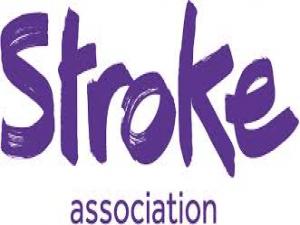
By Q Radio News
Leading charity, the Stroke Association. has announced the launch of a new emotional support counselling service in Northern Ireland thanks to £48,903 funding boost from The National Lottery Community Fund.
The service, the first of its kind to be rolled out across Northern Ireland, will directly support people to rebuild their lives after stroke during the Covid-19 pandemic.
The much anticipated service, known as the ‘First Steps project’, will offer stroke specific emotional and psychological support to stroke survivors and carers living anywhere in Northern Ireland.
The six month project will provide free, professional, one to one telephone or online counselling and is a direct response to the Covid-19 pandemic and calls from the Northern Ireland stroke community.
Upon referral, each case will be professionally assessed and, if appropriate, offered up to six sessions of one to one counselling, all from the convenience of their own home.
In line with Covid-19 public health guidelines, the counselling service will not be provided face to face but the project team will work with individuals to find the best remote communication method to suit the client’s needs.
The counselling sessions are designed to help clients develop emotional resilience, readjust to life after stroke and prepare to reintegrate into their community following the Covid-19 crisis.
Marie Penney, Project Manager of the First Steps Emotional Support service at the Stroke Association in Northern Ireland, said:
Marie Penney
“This much needed funding has been made possible thanks to the National Lottery. We at the Stroke Association are here to support people to rebuild their lives after stroke. The impact on a person can vary depending on which part of their brain is affected.
"It could be anything from wiping out your speech and physical abilities, to affecting your emotions and personality. Stroke survivors and carers are telling us that they are struggling emotionally and this funding will allow us to provide the support they need wherever they are in Northern Ireland.
“Stroke survivors are already experiencing isolation and fear due to having had a stroke. The Covid-19 pandemic has turned lives upside down and we’re hearing every day how it affects people emotionally and psychologically. Feelings of isolation, fear and a sense of a former life lost all echo the experiences commonly felt by stroke survivors and carers.
“The COVID-19 crisis is a difficult and worrying time for everyone and we know that both stroke survivors and their carers are experiencing increased feelings of anxiety, depression and isolation. We believe everyone deserves to live the best life they can after stroke and it’s a team effort to get there”.
Denise Watson is 47 and is originally from Co. Fermanagh but now lives in Belfast. Denise was rushed to Antrim Area Hospital in January 2018 after experiencing stroke symptoms whilst at home. Denise lives with her husband John, daughter Emma and sons Charlie and Louis.
Denise said: “My stroke seemed to come from nowhere really. I didn’t have any health issues or at least nothing I was aware of. That day, I was at home, cleaning and tidying upstairs when I felt a numbness down my right side.
"I continued what I was doing for a while but the feeling got worse and so I looked in the bathroom mirror. I couldn’t see anything wrong but when I tried to speak, my speech sounded very strange to me. It was very frightening. me.
"My daughter Emma’s bedroom, who was 18 at the time, and she instantly spotted that there was something seriously wrong. My husband John knew it too and called for an ambulance. While we waited, my son Charlie was great at keeping me calm”.
After a brain scan at the hospital the medical team informed Denise that she’d in fact, had two strokes. Thinking back, Denise was able to remember an episode three weeks prior when she’d lost her vision temporarily but had put it down to the effects of a very bad migraine. Denise then spent about a week in hospital waiting on further tests and scans.
Denise said: “After I came home from hospital I just couldn’t get the fear of having a third stroke out of my head. My fear was made worse in April 2019 when I experienced similar symptoms again, numbness down one side of my body and speech interruption.
"I was rushed to the Royal Victoria Hospital in Belfast but they put it down to a (TIA) or Transient Ischemic Attack (also known as a mini-stroke). The doctor in the hospital had said that because they hadn’t pinpointed an exact cause of the strokes, that meant they couldn’t rule out another happening.
“I felt very anxious and emotional every time I spoke about my experience. I couldn’t even say the word stroke to my friends or family. I didn’t talk to anyone about how I was feeling because I felt like I didn’t want to worry them even more.
“I’m so grateful to the staff who work on the stroke ward. They were so kind and reassuring and it was my consultant in the Royal Victoria Hospital in Belfast who tried to find me ongoing support and counselling without success until she was able to refer me to the Stroke Association’s counselling service in spring 2020”.
“Marie from the Stroke Association was lovely. I think if you connect with your counsellor from the start it helps. I was able to say things to Marie that I couldn’t say in front of my family for fear of burdening them with my problems.
"I felt listened to, reassured but more importantly, I felt lighter, like a weight had been lifted off me. I’ve not long finished my six sessions of counselling and I’m feeling a good deal more positive now”.
As Denise’s counselling sessions were scheduled during the Covid-19 pandemic lockdown, she was unable to meet face to face with Marie, her counsellor. Denise says that holding the sessions remotely and talking over the phone wasn’t strange at all: “I just put my headphones in and talked away.
"We were able to schedule the sessions for when I’d have the house to myself and could really focus on my feelings and open up. For me, to talk over and communicate my feelings helped me to rationalise my fear and anxiety. Before the counselling I didn’t even say the word stroke. Saying it just made it feel really real and I couldn’t handle that.
“It’s a great service and I know that many people who’ve had a stroke will benefit from counselling like this. Throughout all this I’m so grateful for the support of my husband and family. I just don’t think I could’ve got through this without their love and support”.


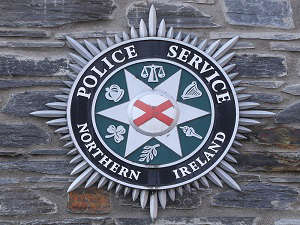 Teenage girl killed in road crash named as Kamile Vaicikonyte
Teenage girl killed in road crash named as Kamile Vaicikonyte
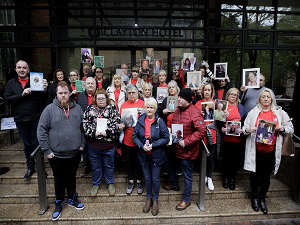 Covid-19 inquiry ‘an opportunity for candour’ from Stormont leaders
Covid-19 inquiry ‘an opportunity for candour’ from Stormont leaders
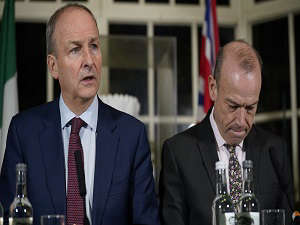 UK and Irish ministers to meet amid row over migration
UK and Irish ministers to meet amid row over migration
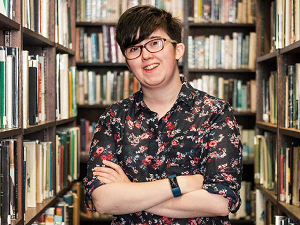 Three men set to go on trial for murder of journalist Lyra McKee
Three men set to go on trial for murder of journalist Lyra McKee
 Swann refuses to rule out resigning if budget is not changed
Swann refuses to rule out resigning if budget is not changed